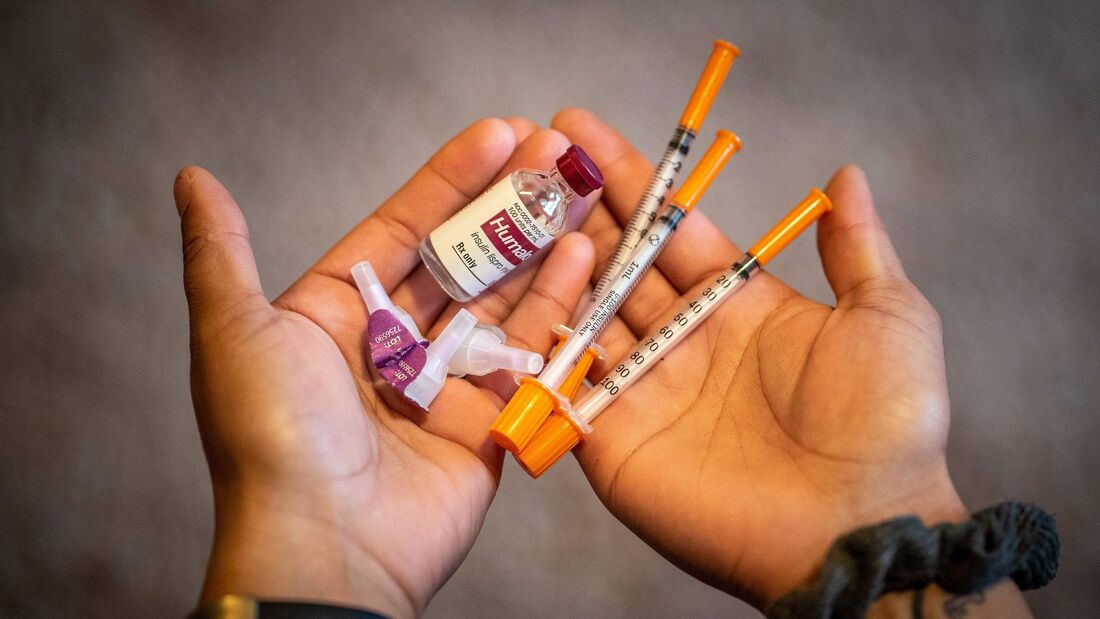


A new Centers for Disease Control and Prevention (CDC) report published this month reveals that approximately 9.2 million people in the US try to save money by rationing their medication. Most adults between the ages of 18 and 64 take at least one prescription medication, but 8% of them—9.2 million people—ration medicine by skipping doses, taking less than instructed, or delaying a refill.
Meanwhile, pharmaceutical giants like Merck are fighting tooth and nail against President Biden’s limited checks on astronomical medication prices. Giving the government power to negotiate medicine prices with companies is “tantamount to extortion,” Merck argues in a recent lawsuit.
Based on data from 2021, the CDC found that the most marginalized of the working class are the ones who are most often forced to ration their medication. Almost a quarter of adults (23%) without insurance rationed their medication in order to save money, versus 7% of people with private insurance. 27 million people in the US have no health insurance at all. People with disabilities were three times more likely to ration medication than non-disabled people, as well as those with fair or poor health as compared to good health. Women were more likely to ration medicine than men.
A report published in November of 2022 found that one in six people with diabetes rationed their insulin. The number was one in four for Black people with diabetes. A third of uninsured adults rationed.
“The main takeaway is that 1.3 million people rationed insulin in the United States, one of the richest countries in the world,” Dr. Adam Gaffney, Harvard Medical School physician and lead author of the study, told CNN. “This is a lifesaving drug. Rationing insulin can have life-threatening consequences.”
“There are stories of many folks in the states who are living with type one diabetes, for instance, who will try to stretch doses, try to make it to the next month and a lot of those folks don’t make it,” said Justin Mendoza, executive director of Universities Allied for Essential Medicines. “You can’t really survive without the proper dosage of insulin if you have Type 1 [diabetes].”
As working people are risking their lives to save money on costly medications, pharmaceutical giant Merck is suing the US government over a law that would empower the state to negotiate prices with companies for a limited amount of branded medicine. This reform in the Inflation Reduction Act of last year “is tantamount to extortion” Merck argues. AbbVie’s CEO claimed that the IRA’s negotiations amount to “price controls” (not that there would be anything wrong with this, many of the world’s largest countries have some system of price controls of medications). Biogen is predicted to follow Merck with their own suit against the IRA. Their CEO also agreed that the IRA is “extortion” and called the law “draconian,” and would prevent them from funding medical research on rare diseases.
But the battle for Medicare, the state-run health insurance program, to be able to negotiate medication, has been going on for a long time. “Medicare should have always had the ability to negotiate lower prices for its enrollees, because Medicare is the largest purchaser of prescription drugs in the US,” says Mendoza. In 2003, “when the law was passed to get [Medicare Part D] through, pharmaceutical companies lobbied and kicked up a couple of votes and got the restriction in place that barred Medicare from negotiating.”
Merck made over USD 14 billion in profits last year, AbbVie generated almost USD 12 billion, and Biogen USD 3 billion (a 95% increase from 2021). The companies seem unwilling to dip into their billions in profits to save the lives of poor and working people and fund necessary research.
“Pharmaceutical prices have been unchecked for far too long,” says Mendoza. “We’ve seen that consistently for more than a decade, that pharmaceutical companies, when they have a monopoly, will raise the price so they can show profits to their shareholders and keep their investors happy.”
“This is just yet another tactic used by large pharmaceutical manufacturers to try to hold on to profits without innovating anything new for patients.”
This article was republished from Midwestern Marx and Peoples Dispatch.